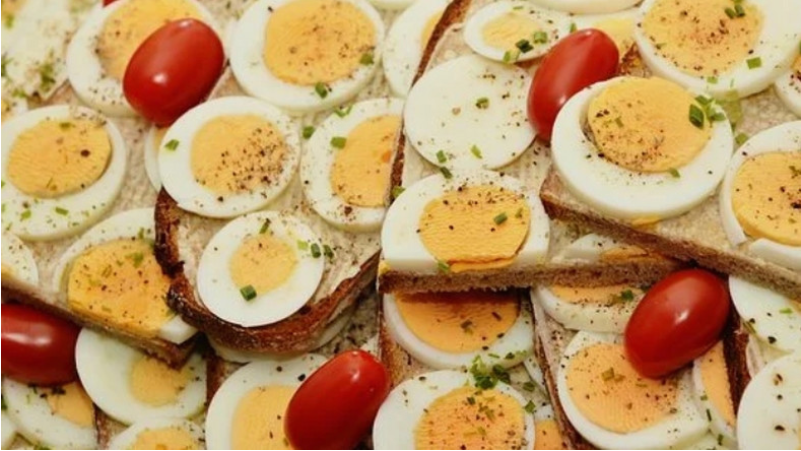Parents, we understand your concern when it comes to feeding your children the right food – especially if they’re picky eaters, and you’re worried about their growth.
What kinds of food should I feed my child?
Children who do grow tall often have more calcium- and protein-rich foods on top of a balanced diet. Here are some important facts:
- Calcium, according to WebMD, helps your child’s bones to grow, boosts circulation and even muscle function!
- Protein builds muscles, an integral part of the body and an essential nutrient needed to keep your body strong. That being said, don’t overfeed your child protein to boost their height if they can’t grow any taller, as height is mainly determined by genes. In fact, too much protein can cause other body issues.
- A balanced diet will help your little one stay healthy while also working cohesively to support the function of calcium and protein.
- For example, Vitamin A helps make proteins, while Vitamin D helps absorb calcium and maintain strong bones.
8 suggestions of food for growth of height for your kids!
1) Eggs
A previous study of Ecuadorian infants aged 6-9 months discovered that children who ate an egg everyday had a 47% reduced risk of becoming stunted than their peers who didn’t. Nothing beats growth delays better than eggs!
The best thing about eggs is that you can cook them in so many ways: hard-boiled, sunny-side-up, fried, soft-boiled, scrambled, omelettes, baked, steamed — if one doesn’t work with your picky eater, there’s another form that surely will!
2) Soyabean curd
All beans and natural legumes are nature’s plant protein powerhouses.
Soyabeans, which are rich in proteins can easily boost your child’s height. In fact, the Scientific American says that protein is the most important nutrient for children’s final height.
So do let your little one slurp that delicious cool bowl of soyabean curd or a warm cup of soy milk when they need a quick snack!
Protein normally comes from animal meat, but only choose lean meats. One good source of protein is tuna.
If you can’t find it fresh, then go for the canned variety.
Spread it on wholegrain bread, sprinkle it with grated cheese and pop it under the grill — and your child has a delicious, nutritious, height-boosting snack!
4) Mixed nuts
Almonds, pumpkin seeds, pistachios, peanuts, cashews… these protein-packed nuts make for a crunchy and fuss-free nibble between meals.
In addition to protein, nuts also provide healthy fats that can support the body to rebuild damaged tissue and grow new muscle tissue too.
This healthy substitute to biscuits and crackers also pack some nutrient powerhouses that boost physical development by invigorating the body’s growth hormones.
Still not healthy enough? Choose the ones that have less salt, if not unsalted.
5) Peanut butter
Some types of peanut butter pack a serious protein punch. Check the nutritional labels for the high-protein kind.
Once you’ve got that right, you can even spread this nutty goodness on crackers, toast, or even pancakes for your little ones to munch on.
6) Dairy products
Milk, yoghurt and cheese are some of the best sources of both protein and calcium, in addition to other nutrients for growing robust muscles.
Calcium helps to maximise bone growth — especially for bones that are still developing! Here are some ideas to serve them to your kids:
- use yoghurt-based dips for carrot sticks or other snacks. Greek yoghurt is a good choice, as it is chock-full of calcium and protein. If your child doesn’t like the sour taste, there are flavoured versions in the market too!
- you can use cute cookie molds to shape cheese into animals or other figures and pierce them with fruits and vegetables as a healthy snack!
- have an issue with lactose intolerance? No worries! Alternatives like Swiss cheese and aged cheddars aren’t packed with lactose and are easier for kids to handle.
- goats cheese (one of the best sources of Vitamin A), can be made into a simple sandwich. You can even use it by spreading it on bread or dip cherry tomatoes in the creamy mix.
- milk can be drunk cold on its own. But if your children aren’t so keen on the taste, why not consider spicing it up a little bit? Heating milk and dropping a cinnamon stick in with some honey might do the trick.
7) Fruits
Not all calcium and minerals need to come from dairy products — in fact, many fruits are good sources too! Did you know that the following can help your child’s developing body, too?
- Oranges are a surprisingly good source of calcium. To top it all off they are also rich with other essential nutrients, like vitamin D and A. Squeeze fresh juice, or buy the calcium-fortified kind in cartons for a cool drink to beat the summer’s heat.
- Bananas are rich in potassium, a mineral needed to create stronger bones, enhance bone growth and improve blood circulation in the body. Consider cutting it and adding to cereal, oatmeal, or even making some banana bread!
- Mangoes aren’t only popular with kids — they’re also high in Vitamin A! Simply put frozen mango and equal amounts of milk in a blender for a delicious and healthy drink.
8) Carrots
Some kids don’t like to eat their veggies. An easy way to cope with this issue is to make their veggies more appetising by being creative.
Not only can you use a cookie mold to cut all sorts of shapes, you can even take it one step further by baking carrots and glazing them with honey. Once they are soft, pair them with delicious peanut butter based dip, and your child is all set for growing taller.
Nutritionally speaking, carrots are rich in beta carotene – a nutrient which becomes processed into vitamin A in the body.
The protein-building vitamin, coupled with calcium, phosphorous and magnesium in this bright superveggie supports your child in making long-lasting bones and creating protein to build up muscles.



